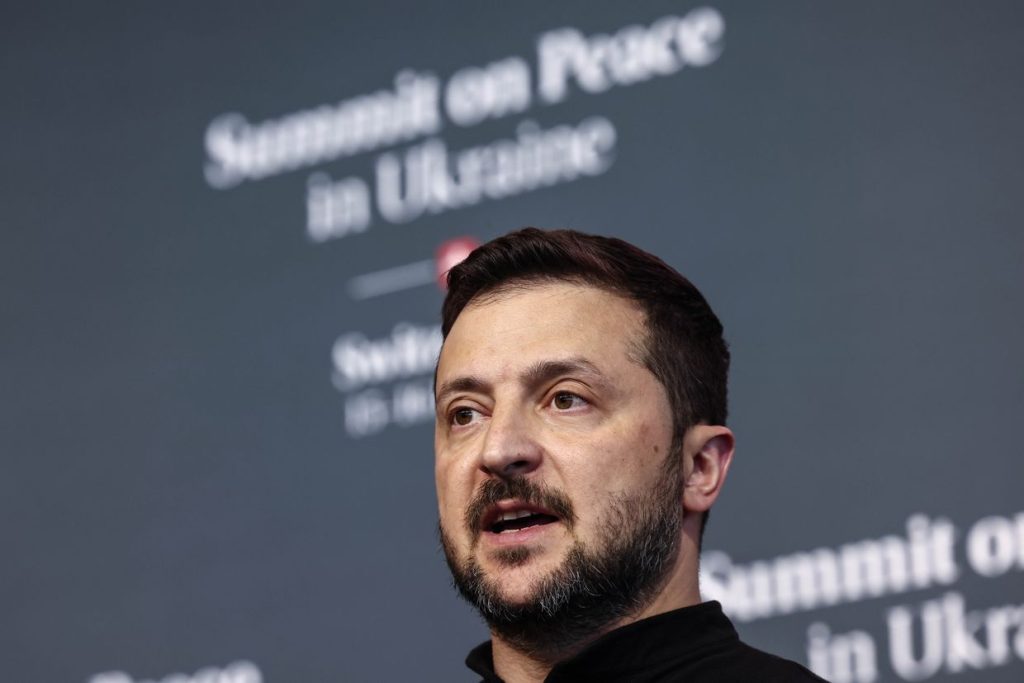The Ecumenical Patriarchate of Constantinople recently added its signature to a joint communique for Ukraine, while Rwanda’s signature has disappeared. This brings the total number of countries and organizations supporting the document to 77, with key points including the return of the Russian-occupied Zaporizhzhia Nuclear Power Plant under Ukraine’s control, ensuring food supply in Ukraine, and releasing prisoners of war. The communique also condemns the use of nuclear weapons and attacks on ships and civilian ports in the context of Russia’s war against Ukraine. President Volodymyr Zelensky noted that while 101 countries and organizations attended the summit, not all of them supported the communique, with signatures from Jordan and Iraq later removed. Russia was not invited to participate, and China rejected the invitation, while Brazil, present as an observer, did not sign the document.
The recent Ukraine peace summit, focusing on nuclear safety, food security, and prisoner swaps, concluded after two days of discussions at the Burgenstock resort in Switzerland. Over 90 countries, along with a few organizations and one observer, participated in the summit. The summit aimed to address key aspects of Ukraine’s 10-point peace plan, with discussions on returning the Zaporizhzhia Nuclear Power Plant to Ukraine, ensuring food supply, and exchanging prisoners of war. However, despite initial support from 80 countries, some signatures were later removed, including those of Jordan and Iraq. The absence of key nations like Russia and China, as well as the failure of Brazil to sign the communique, indicate the complexities and challenges in achieving peace in Ukraine.
The joint communique issued during the summit called for the return of the Zaporizhzhia Nuclear Power Plant under Ukraine’s full control, guaranteeing food security, and releasing prisoners of war. The document also condemned any threat or use of nuclear weapons and attacks on ships and civilian ports in the context of the conflict between Russia and Ukraine. The summit gathered support from 77 countries and five organizations, highlighting the global solidarity for Ukraine’s cause. However, the absence of signatures from key nations like Russia, China, and Brazil, as well as the removal of some signatures, underscores the challenges in achieving consensus and lasting peace in the region.
President Zelensky emphasized that while 101 countries and organizations were present at the summit, not all of them supported the joint communique. The summit’s focus on nuclear safety, food security, and prisoner swaps reflected key priorities in Ukraine’s peace plan. However, the absence of key players like Russia, China, and Brazil, along with the withdrawal of signatures from Jordan and Iraq, indicates the differing perspectives and interests among nations involved in the conflict. The summit’s discussions and outcomes shed light on the complexities and obstacles in resolving the conflict in Ukraine and ensuring lasting peace in the region.
The peace summit in Switzerland highlighted the urgent need to address critical issues such as nuclear safety, food security, and prisoner exchanges in Ukraine. The joint communique issued during the summit emphasized key priorities, including the return of occupied territories, securing food supplies, and releasing prisoners of war. The support from 77 countries and five organizations demonstrated a global commitment to Ukraine’s peace process. However, challenges remain, as not all participants endorsed the communique, and key nations like Russia and China were absent from the discussions. Moving forward, continued international efforts and dialogues will be essential in resolving the conflict in Ukraine and fostering lasting peace in the region.


